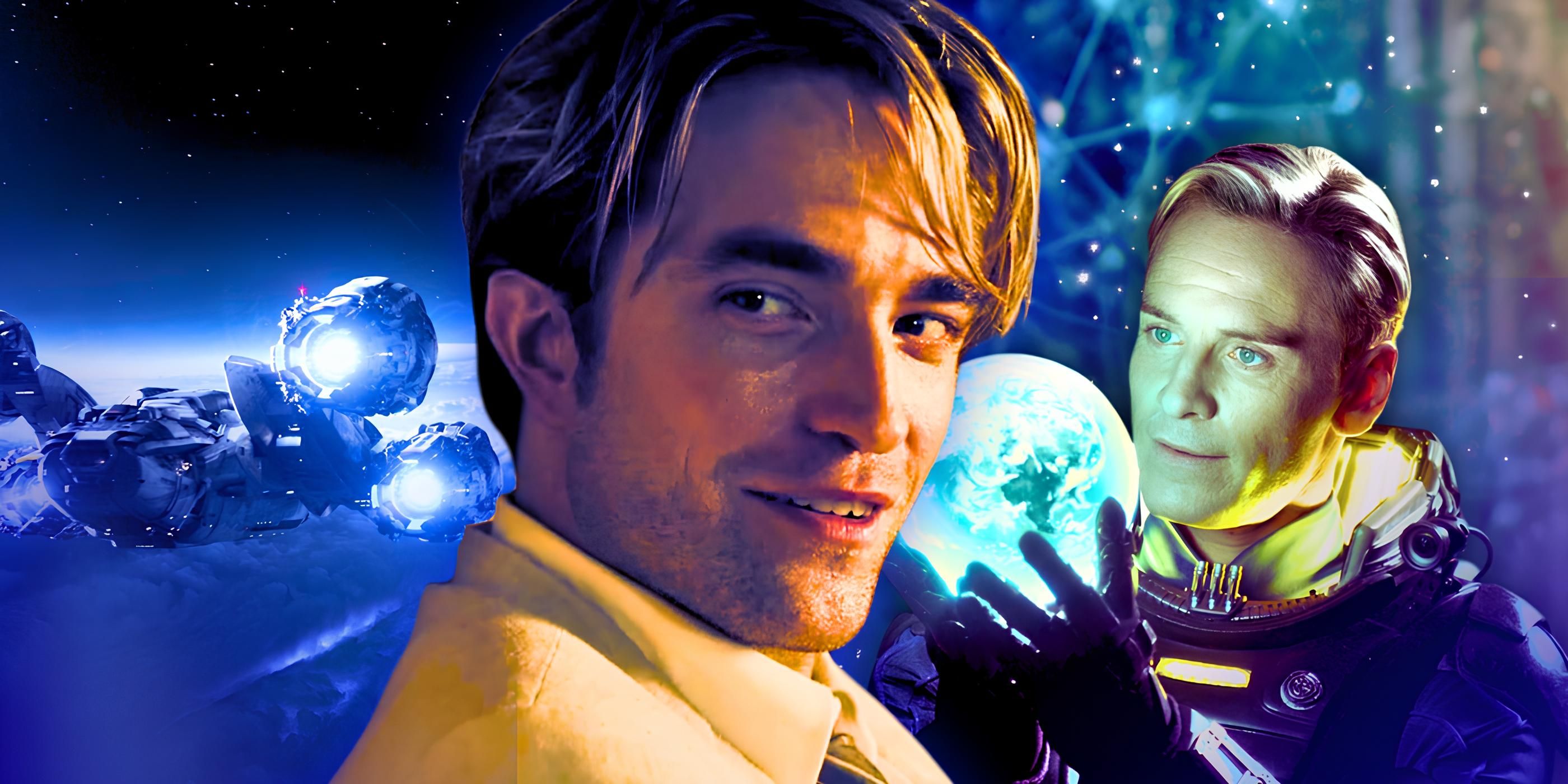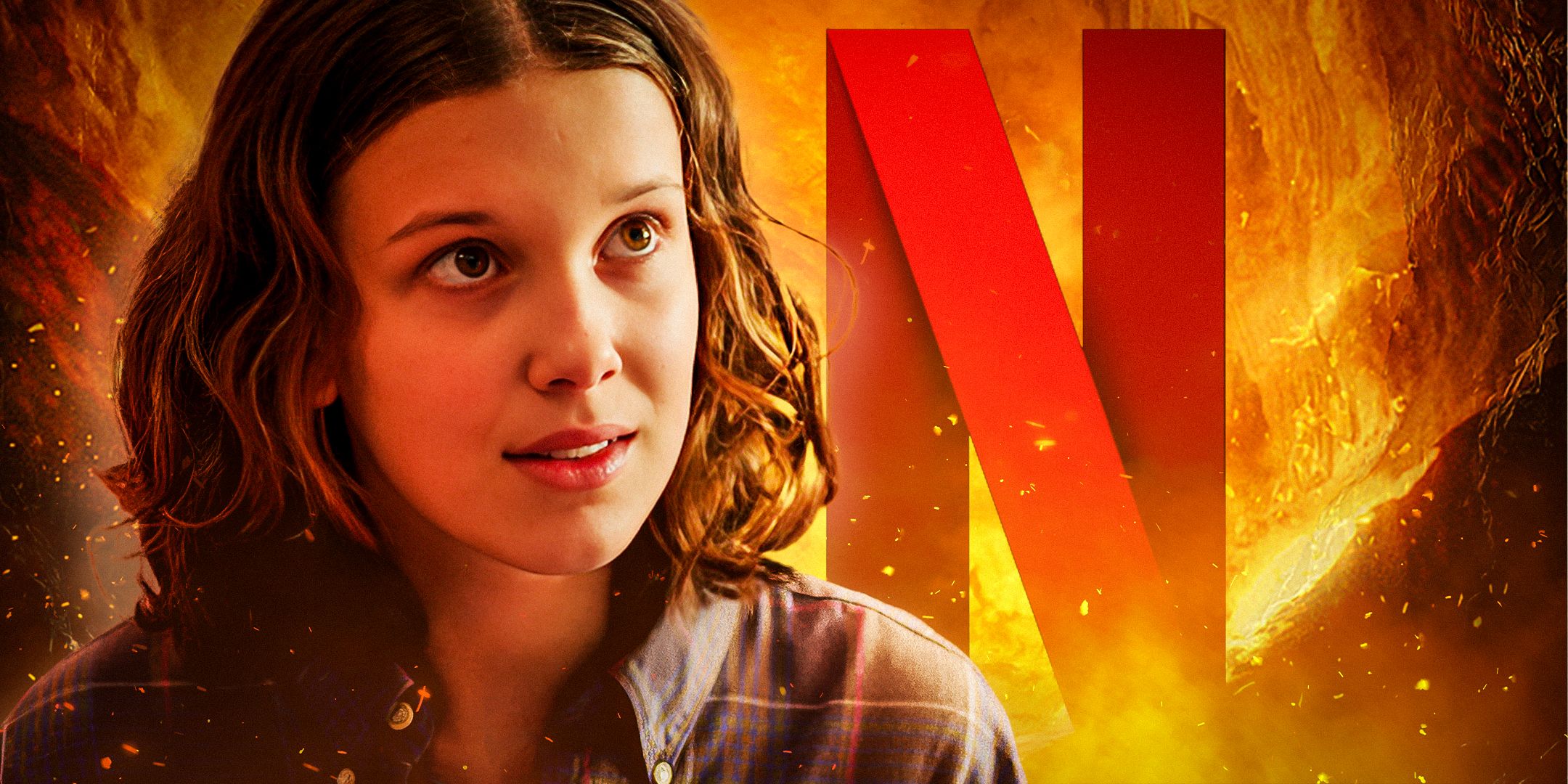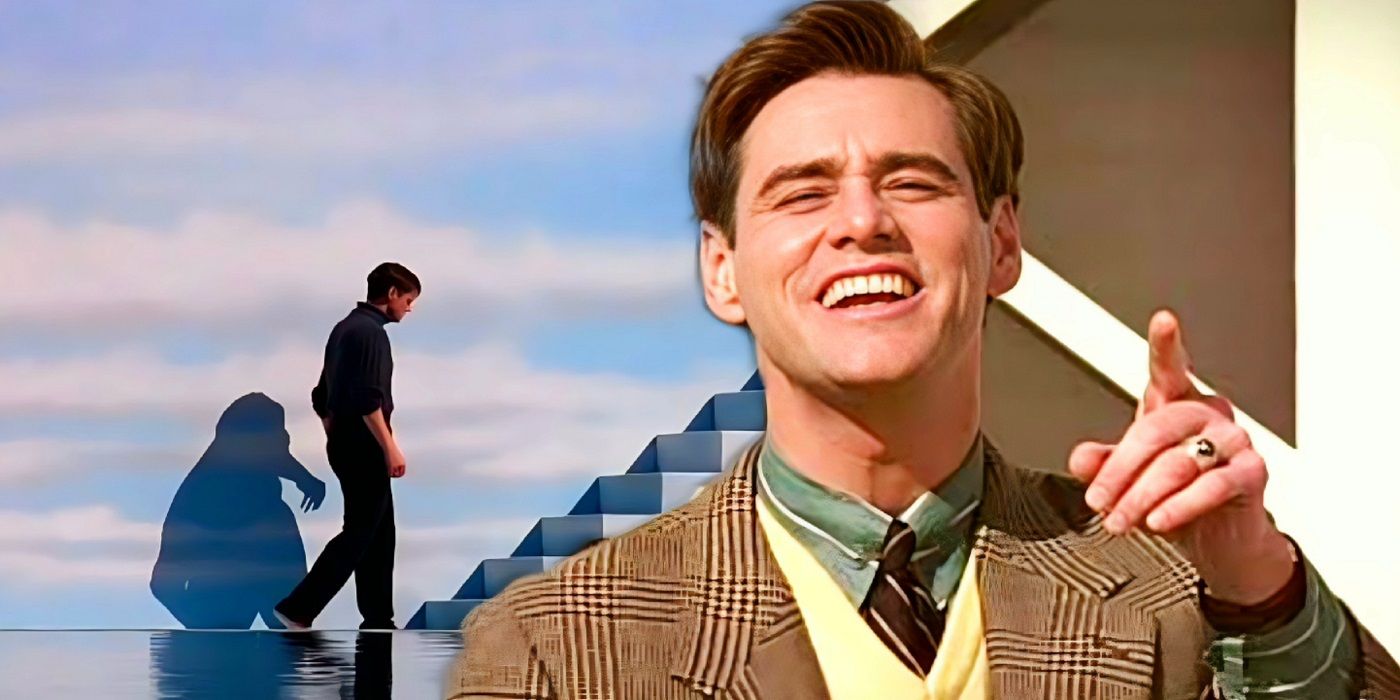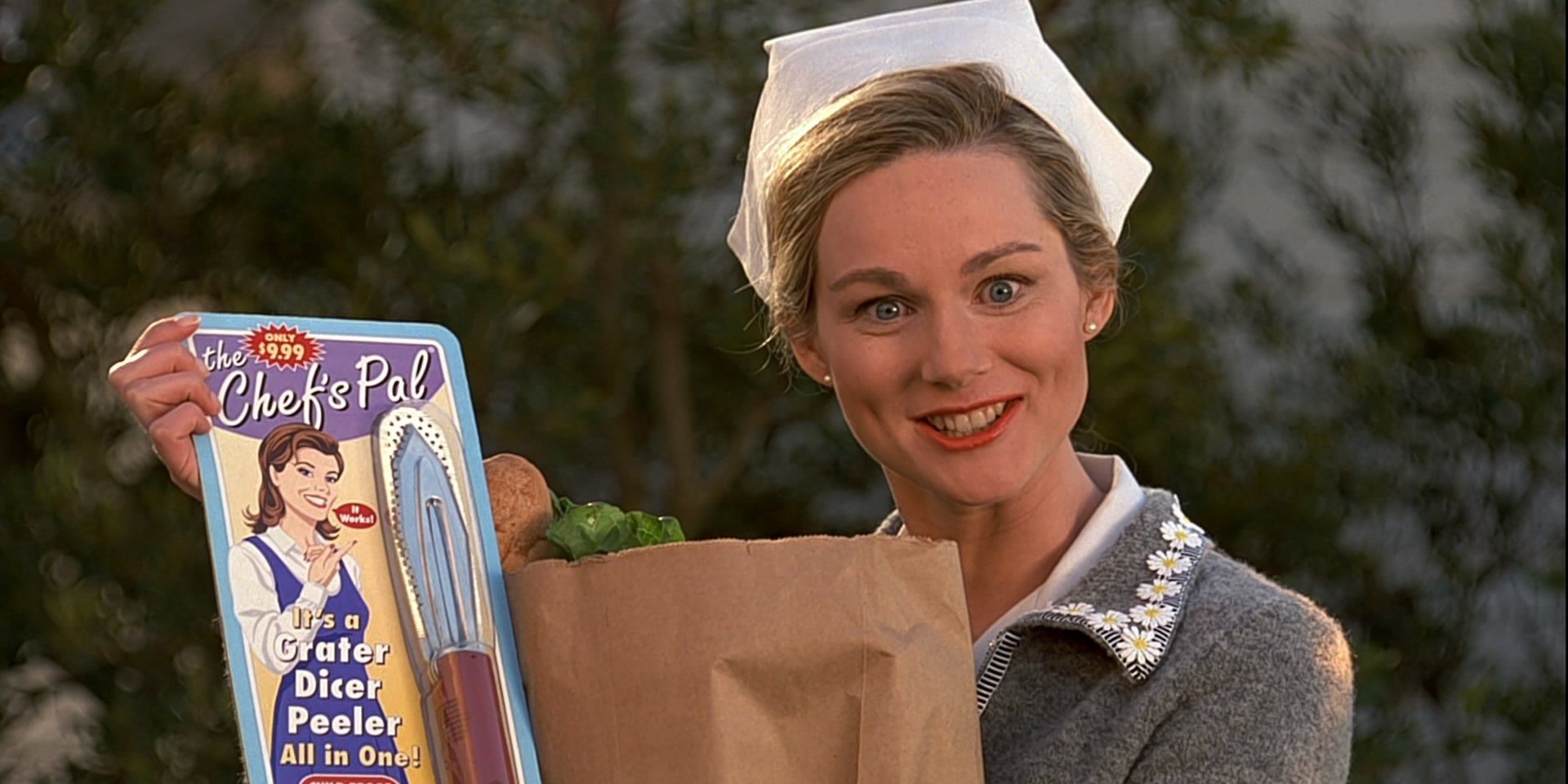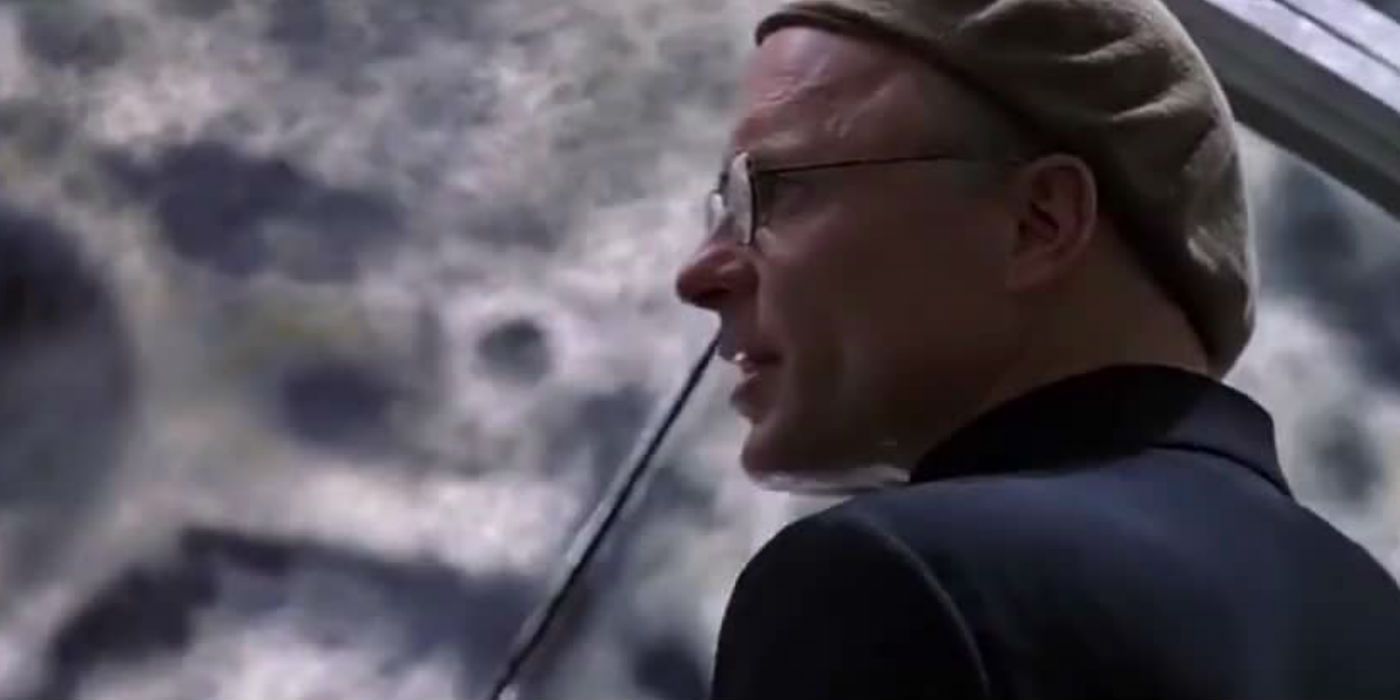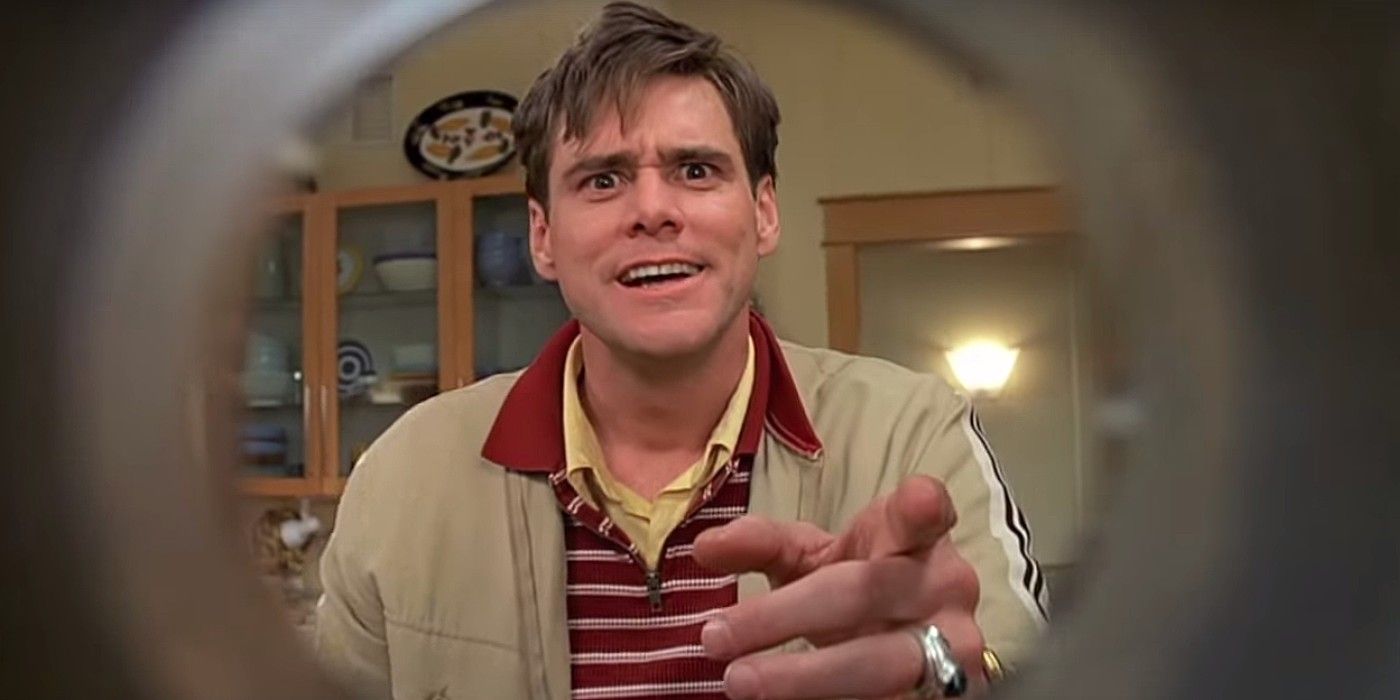Summary
- Truman Show unveils the manipulation of reality, showcasing how media controls perception through deception and subliminal cues.
- The movie symbolizes personal freedom struggles, as Truman fights external forces that hinder his quest for autonomy.
- Seahaven mirrors Plato's Cave allegory, illustrating how Truman's world is a manifestation of scripted reality and control by media.
The Truman Show brims with philosophical and sociological themes, leaving audiences curious about The Truman Show's meaning in the end. Starring Jim Carrey as the titular Truman Burbank, The Truman Show portrays how the main character grows up believing that he is an ordinary man, but, unbeknownst to him, his life has always been a reality TV series, where everyone around him is an actor. The island he lives on is a giant television filming set and nearly every second of his life is broadcast live to millions of viewers in the outside world.
Although Truman does not even distantly believe that the world around him is a mere simulation, perfectly orchestrated for a television series, he starts noticing strange inconsistencies and unlikely synchronicities around him that make him suspicious. With this, the deeper he delves into his quest to find answers, the more he understands the true nature of his fake reality. Audiences follow Truman as he finds the answers and true meaning of his world as he gradually removes the tapestry of the lies he is being fed.
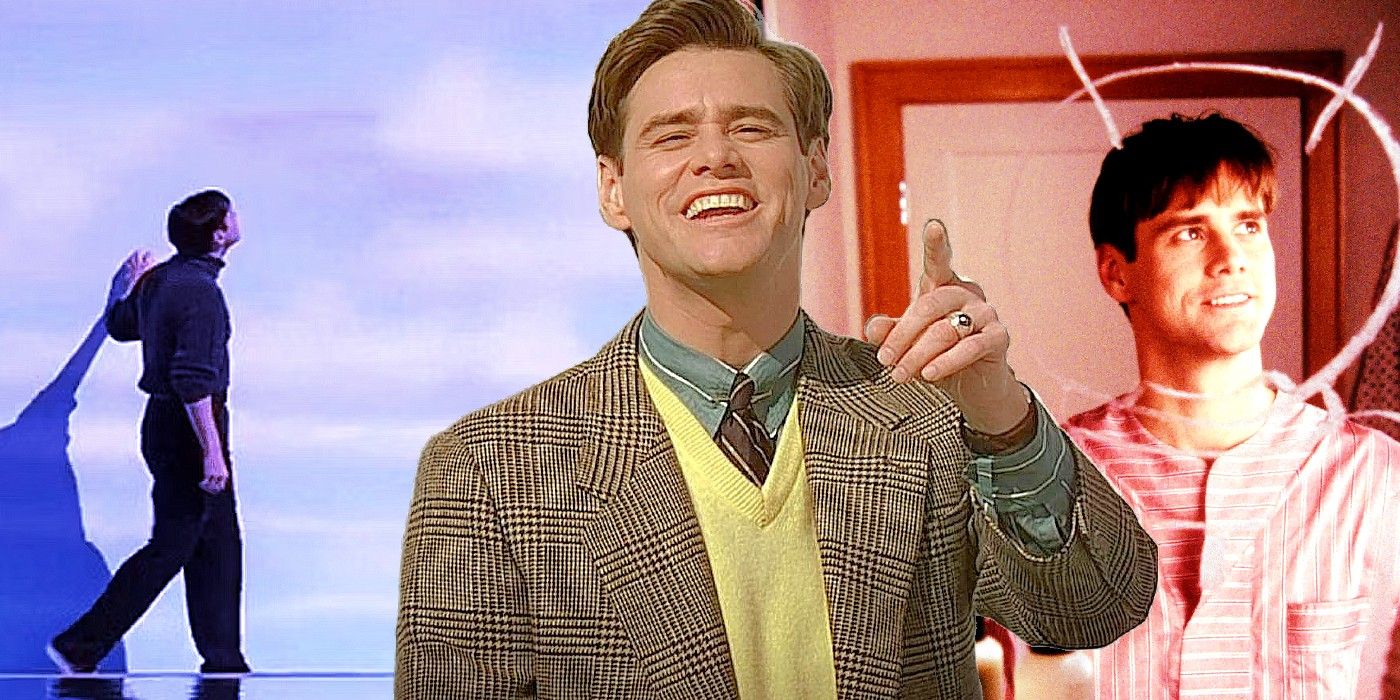
25 Best Quotes From The Truman Show
The Truman Show was a surprisingly deep Jim Carrey comedy that became iconic for years to come, and we have all the best quotes.
The Truman Show Examines The Manipulation Of Reality
Truman Has Been Robbed Of Free Will Without Realizing It
In its opening arc, The Truman Show establishes how the titular character's reality is fabricated by a media corporation, governed by a single writer, Christof. Everything from his childhood fears to his day-to-day interactions is carefully manufactured by the people behind the central show's production. Time and again, even the actors around Truman force unsubtle product placements into his narrative, further enhancing the artificial nature of Truman's reality. Even the weather is controlled, highlighting how, just for entertainment and profits, the media corporation behind the show shapes, constructs, and sells an alternate reality.
By manipulating Truman's perception through an entire world built on lies and deception, the media corporation behind the show keeps him oblivious that he is living in a simulated reality. The creators of the titular show in The Truman Show also place subliminal visual cues all around Truman to ensure that he conforms to their scripts without believing that he does not have free will.
By portraying this depiction of how a media outlet can blur the lines between reality and fiction through careful manipulation, The Truman Show highlights how media in the real world can often influence public perception to a degree where they start accepting reality without ever noticing how it is being forged with lies.
How The Truman Show Presents The Struggles Of Personal Freedom
Truman Fights Against The Outside Forces Trying To Keep Him In Place
In the Jim Carrey movie's second arc, Truman starts seeing cracks in the fabric of lies surrounding him. At first, he notices a light fall out of the sky but chooses to ignore it because the notion of being the main character of a TV show seems so novel and far-fetched that it does not even cross his mind. However, the more Truman notices these glitches in the matrix of his reality, the more he turns skeptical about its nature.
When he finally sees strange synchronicities and loops in his surroundings, he realizes there is more to his world than meets the eye. This marks the inception of his struggle for personal freedom. In a reality where everything is governed by determinism, Truman sets out to seek free will. Unfortunately, this pursuit soon makes him realize that his journey toward personal freedom will be marred with several obstacles.
For instance, when he tries leaving town, the show's creators set up stoppages that prevent him from leaving the show's massive set. Even when he reaches the brink of finding answers to what is happening around him, they play with his emotions by reinstating his fake father into his narrative. People like Truman's best friend, Marlon, who he confides in, also blatantly lie to him by emotionally manipulating him into not leaving for Fiji.
Like every human, Truman seems to have an innate desire to transcend the predetermined paths of his scripted narrative. However, just like external forces such as culture, society, and personal obstacles prevent an individual from finding personal autonomy, Truman struggles to overcome the sense of attachment he feels to his fake reality despite knowing how it is holding him back from achieving freedom. He feels bound by the fake fears, insecurities, and traumas the show's creators instilled in him all his life.
Seahaven's Symbolism Explained
The Truman Show Draws On A Classic Philosophical Concept
Seahaven, Truman's hometown in The Truman Show, represents the metaphorical cave in Plato's Cave allegory. The allegory imagines a hypothetical cave where a group of people has been chained to a wall, restricting them from seeing the outside world. All they can see is a blank wall opposite the cave's opening.
Owing to this, their sense of reality revolves around the shadows from the outside world cast on the blank wall they face. Like shadows from the outside world manipulate and limit the perception of the people inside the cave, the predetermined scripts created by The Truman Show's writers control the thoughts and actions of people inside Seahaven.
In Plato's Allegory, one person from the cave later steps out and sees the world for what it is.
The actors surrounding Truman may be aware of the show's true nature. However, as seen in The Truman Show's opening testimonials, they, too, buy into its forced reality. They may believe that the awareness of the show's nature sets them free, but they are nothing more than mere lines written on a script. In Plato's Allegory, one person from the cave later steps out and sees the world for what it is.
When he returns and tries convincing his fellow humans to leave with him, they refuse to follow his lead because they are so used to seeing the projections of reality that they do not want to experience it firsthand. When Truman starts noticing the cracks in Seahaven's reality, he, too, tries to tread the same path as the individual who left the cave in Plato's fable.
However, just like the cave people were too comfortable seeing the shadows and afraid to experience the outside world's reality, the actors around Truman were too consumed with their fame to notice everything morally and ethically wrong with Seahaven. They were blinded by the fact that like Truman, they, too, were mere puppets of the media cabals above them.
Why The Truman Show Was So Ahead Of Its Time When It Came To Media
The Truman Show Helped Predict Aspects Of Social Media And Celebrity
The Truman Show was truly ahead of its time with its depiction of the exploitative nature of media. While its focus was primarily on reality TV, its themes have become all the more relevant with the prevalence of social media. Like Seahaven created a fake alternate reality, where Truman was the main character of his narrative, social media can often make users believe they are the stars of their own TV show if not used carefully.
The Truman Show was also meta and self-critical for its time because, like many media outlets, it intentionally desensitizes viewers to the seriousness of its subjects by using comedy as a narrative device. In many ways, it also foresaw the rise of morally questionable reality shows and the prevalence of surveillance systems and user data collection. Even the movie's ending is cleverly multi-layered because it is a tragedy in disguise.
While Truman literally and metaphorically breaks Seahaven's walls and steps outside into the real world in The Truman Show's ending, it is hard not to wonder if he will ever be able to trust anyone after what he went through. Since the world obsessively watched him for many years on television, he will probably never break the prism of his celebrityhood and exploitative media fandom to find the freedom he seeks after The Truman Show.
Why The Truman Show's Lessons Will Always Be Timeless
The Truman Show Continues To Be Relevant To Modern Media Concepts
Though it has been decades since the movie's release, interest in The Truman Show's meaning and the lessons of its story are still relevant. The movie's popularity is still strong because of these big ideas that still strike a chord. There are even aspects of modern society for which the movie has become even more relevant, even speaking to things that weren't really factors in 1998.
[T]he news, social media, and algorithms seem to keep people in boxes, fueling one perspective and discouraging them from broadening their minds with new ideas.
One of the most obvious things is reality television. Had the movie come out a few years later, the idea of someone's life being documented at the center of a television show would never have seemed as unique of a premise. Somehow, The Truman Show managed to beat the boom of reality shows that came in the early 2000s, igniting a voyeuristic entertainment value among mainstream audiences. However, there is also the idea that, like The Truman Show, these shows are manufactured representations of reality.
Even more recently, The Truman Show seems to address the common fear of the media having too much control over the narrative of everyday life. No matter a person's beliefs or opinions, it is hard to deny that they are being heavily influenced by the media these days. Just as Christof attempts to manipulate the world around Truman to make him stay in Seahaven, the news, social media, and algorithms seem to keep people in boxes, fueling one perspective and discouraging them from broadening their minds with new ideas.
While there are still no plans for The Truman Show sequel to happen, it will be interesting to see how the original movie will continue to have relevant influences the more it ages.
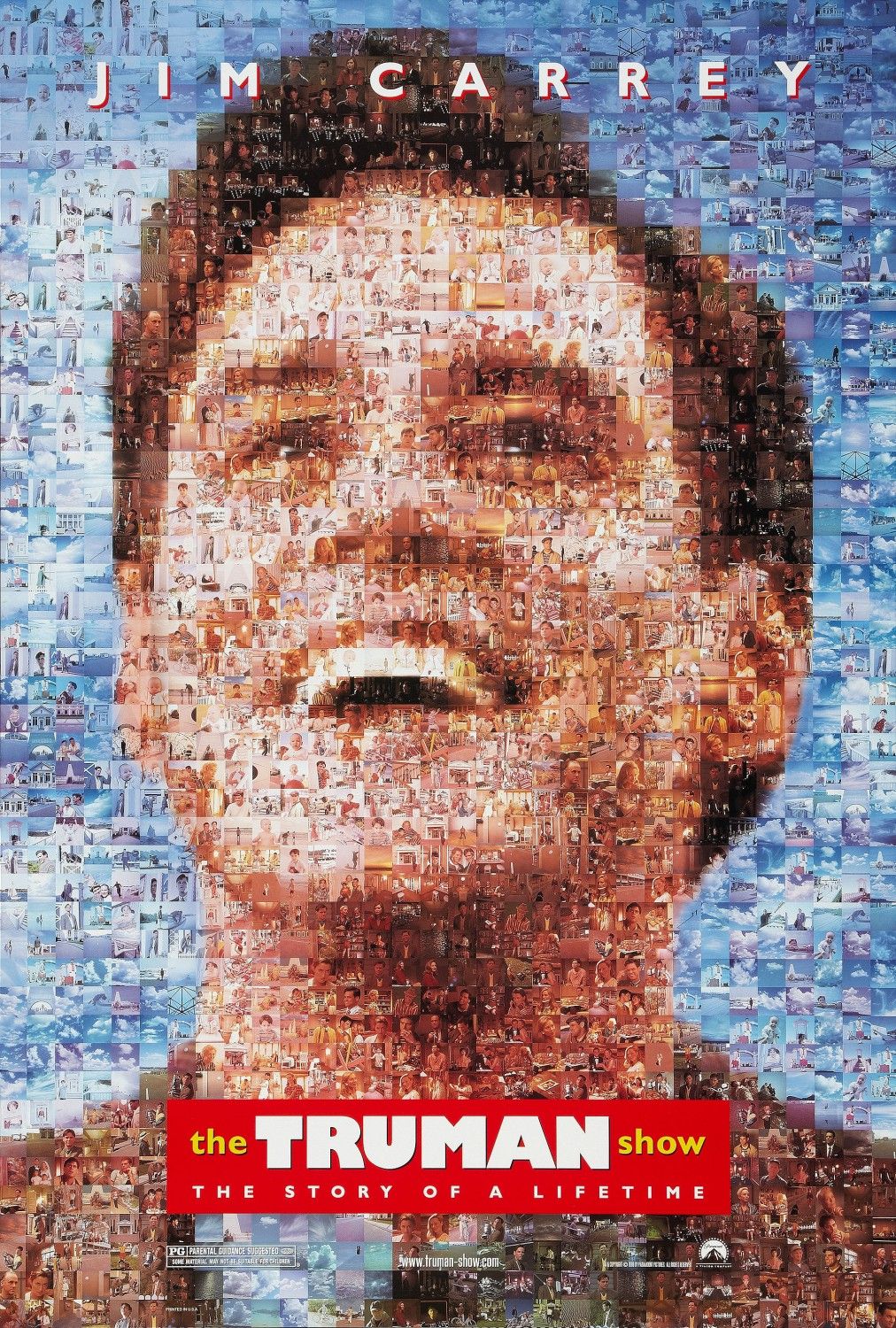
The Truman Show
The Truman Show is a 1998 comedy-drama directed by Peter Weir. It follows the life of Truman Burbank (Jim Carrey), a man who discovers that his entire life has been a reality TV show with an audience in the millions. Laura Linney plays Truman's wife Hannah Gill, Noah Emmerich plays his best friend Marlon, and Ed Harris portrays the series' director, Christof.
- Director
- Peter Weir , peter
- Release Date
- June 5, 1998
- Cast
- Ed Harris , Natascha McElhone , Laura Linney , Jim Carrey , Noah Emmerich
- Runtime
- 103 minutes



